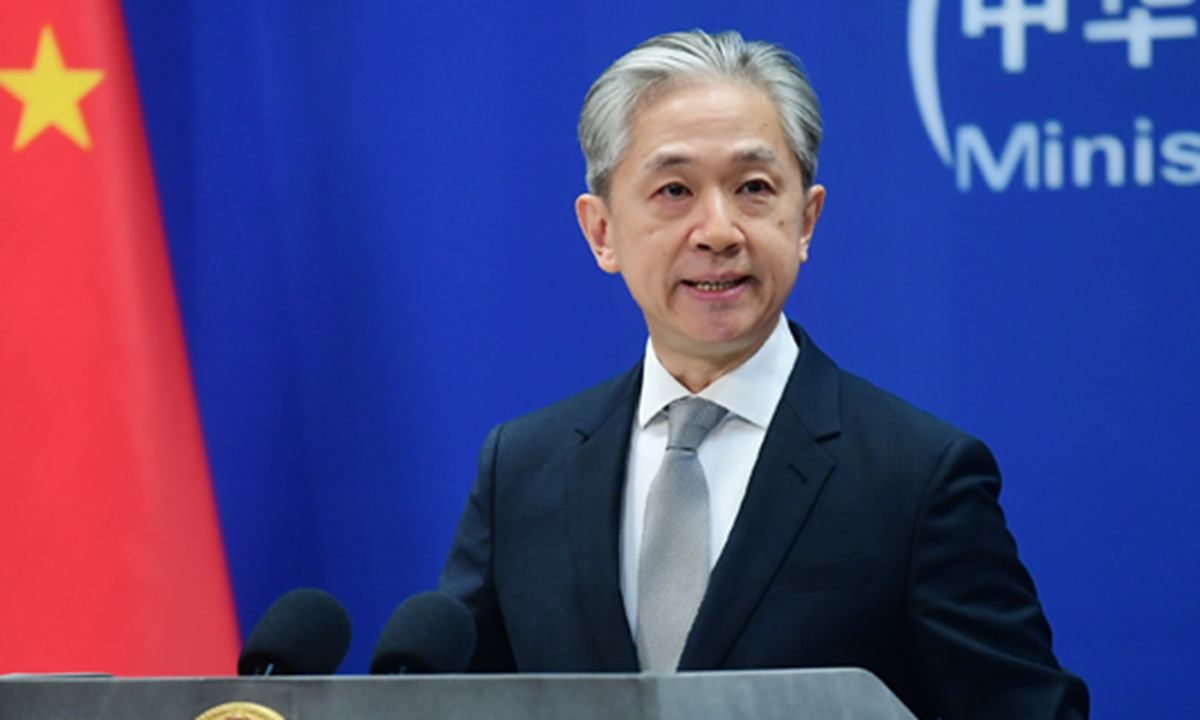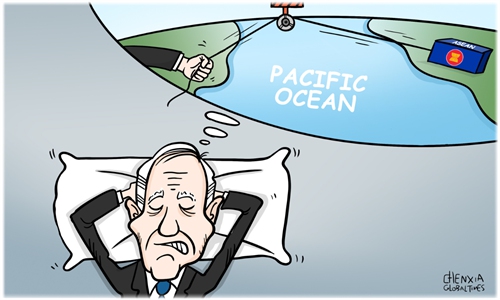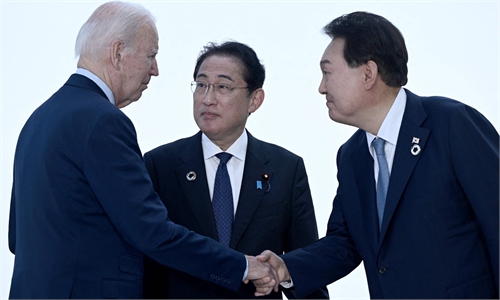China lodges solemn representations with relevant parties in Camp David summit on Taiwan question and South China Sea issue: FM

Chinese Foreign Ministry spokesperson Wang Wenbin Photo: mfa.gov.cn
China expresses strong dissatisfaction and has lodged solemn representations with relevant parties after the leaders of the US, Japan and South Korea smeared and attacked China on the Taiwan question and South China Sea issue during the Camp David summit, which seriously violated the basic norms governing international relations, the Chinese Foreign Ministry responded on Monday.The Biden administration held the summit with the leaders of main US allies in Asia, South Korean President Yoon Suk-Yeol and Japanese Prime Minister Fumio Kishida on Saturday. "The purpose of our trilateral security cooperation is and will remain to promote and enhance peace and stability throughout the region," the leaders said in a joint statement, noting that they "strongly oppose any unilateral attempts to change the status quo in the waters of the Indo-Pacific."
US President Joe Biden maintained, as have US, South Korean and Japanese officials, that the summit "was not about China" but was focused on broader security issues.
Yet, the leaders in their joint summit concluding statement alleged China's "dangerous and aggressive" action in the South China Sea and reaffirmed the "importance of peace and stability across the Taiwan Strait."
We have noticed that the US said that the US-Japan-South Korea partnership is not directed against any country, and China urges the US side to match its words with deeds, stop tarnishing China's image and harming China's interests, stop creating division and confrontation and undermining regional peace and stability, Chinese Foreign Ministry spokesperson Wang Wenbin told a press conference on Monday.
Wang stressed that there are two trends in the Asia-Pacific region. One is the efforts of regional countries represented by the Regional Comprehensive Economic Partnership (RCEP) and the Comprehensive and Progressive Agreement for Trans-Pacific Partnership (CPTPP) to strengthen solidarity and cooperation and promote regional economic integration. The other is an attempt to revive the Cold War mentality by inciting division and confrontation represented by the exclusive small circle of the AUKUS alliance, the US-Japan-South Korea partnership, and the Quad mechanism. It is a pity that the US is not seen in the former, while the latter views Washington as their central axis.
Wang said that the Asia-Pacific region is a high ground for peaceful development and should not become a boxing arena for major powers to wrestle, still less a battlefield for a new cold war. All attempts to mobilize a new cold war in the Asia-Pacific will be resolutely resisted by the countries and peoples of the region, and all attempts to establish and maintain hegemony in the Asia-Pacific are doomed to fail.
At present, the biggest threat to peace in the Taiwan Straits is the separatist activities and malicious support by external forces. If relevant countries really care about peace and stability in the Straits, they should abide by the one-China principle, stop supporting Taiwan independence secessionists and their activities, and take concrete actions to safeguard regional peace and stability, Wang noted.
Wang also pointed out that China has indisputable sovereignty over the South China Sea islands and their adjacent waters. China's construction activities on its own territory and Chinese coast guard vessels' rights protection and law enforcement activities in waters under China's jurisdiction are legitimate and beyond reproach.
As the US has mobilized its allies to carry out frequent military exercises and close-in reconnaissance in the waters around China, including the South China Sea, flexing its muscles and escalating regional tensions, which has become the biggest threat and challenge to regional peace and stability. China will continue to firmly safeguard its sovereignty and security interests, work with ASEAN members to fully and effectively implement the Declaration on the Conduct of Parties in the South China Sea, actively advance consultations on a Code of Conduct in the South China Sea, carry out maritime practical cooperation, and firmly safeguard regional peace and stability, Wang said.
Global Times


